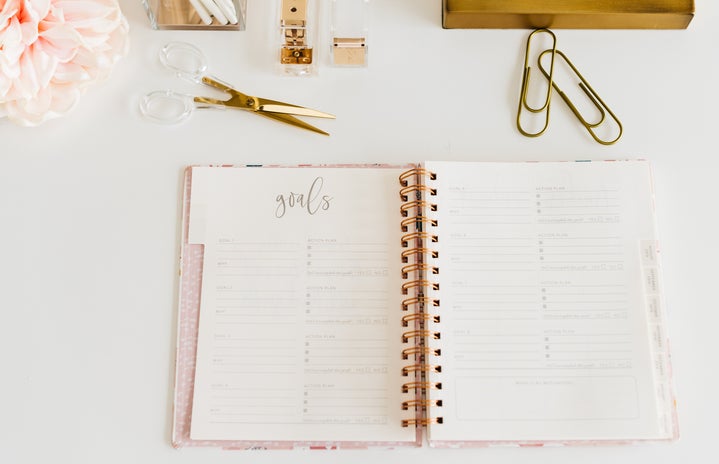Whether you’re transitioning from high school to higher education or simply getting back into the swing of things after a holiday break, adjusting to the rigours of university life can be tough. For me, figuring out study methods and hacks that actually help, took months of trial and error – AKA months of sleepless nights, rushed assignments, and readings I pushed back too far. Now, I’m proud to say that I’ve gathered my best practical tips for academic success so you can become the next Elle Woods.
- Use ‘OneNote’ For Note-Taking
-
Move over, Google Docs. The superior notetaking platform is here. I’ve used OneNote since my first year of high school, and its easy-to-use functionality and organization can’t be beat. It has all the features of Microsoft Word with the ability to organize subjects into colour-coded “notebooks” in which you can further organize by section and page (and when you really need to find that one little thing you typed ages ago, the search function never fails!).
You can easily insert screen clippings and PDFs from other windows you have open on your computer, and it also has drawing and highlighting tools which could be especially helpful for those who like to handwrite using a tablet. You can even change the background of your notebook to ‘dark’ mode or even grid or lined paper. OneNote automatically syncs your notes to all of your devices so you’ll always have a back-up, and the browser and app versions are free for anyone to use. - Use ‘Notion’ For Organizing Assignments
-
Yes, I’ll admit it: I’ve spent a lot of hours on #studytok, and I’ve seen the hype about this app. About a month ago at the start of the new semester, I decided to give it a download myself. So far… I love it. The provided templates, such as the grade calculator, calendar, and reading list, are extremely easy to navigate, and you can customize them to fit your aesthetic through different colours, backgrounds, images, and even emojis.
I used Notion to create my own assignment schedule in which I colour-coded all of my courses and input every single assignment due date I had coming up this semester (which, might I add, made me a little sick of looking at syllabi). From there, I added a section for a brief description of the assignment, a section about its weight, and a checkmark box for completion. I’ve referred to it many times to keep track of what work I have coming up and it’s great for planning ahead! - Always Print Out Assignment Instructions
-
This is something that will help you more than you think it will. Whenever you’re given assignment instructions or a marking scheme, always print it out, highlight the most important points, and tape it somewhere where you can refer to it, like above your desk. If you’re like me and you’re only working with one screen like your laptop, you might be flipping back and forth between tabs from assignment instructions to your document, which could put you at risk of glancing over an important detail. Having a printed copy of the instructions will ensure that you stick to every single one.
- Work On A Start/Finish Schedule
-
Write out every single day of the week, then go through your syllabi and see what homework you have to do every week, colour-coding each class. Then, organize your homework by arranging a start/finish schedule. For instance, if I consistently have a textbook reading to do before my media law class on Fridays, I’ll write on my schedule that I’ll at least start the reading by Wednesday and finish it by Thursday. I don’t put any minimum number of pages to read on the “start” days– the entire point is to simply start the reading on that day. I find that this creates a lot less pressure to finish the homework when I know I’ve at least begun it and progress has already been made. It also lessens the chance of dedicating an all-nighter to finishing homework in a panic the day before.
- Move All Your Due Dates Up By 1 Day
-
Judging by the reception of my friends and classmates, this might be my most controversial tip, but it’s always given me a great outcome. Take a look at your due dates, and mentally move all of them up by 1 day. This means finishing the assignment completely as a good copy, not just a draft, 24 hours before it’s actually due. You might be thinking, “Why would I take away an entire day that I could be using to work on it?” and I argue that it’s more difficult to produce a good piece of work that you’re proud of when you’re finishing it just hours before it’s due. Not to mention the stress and panic you might feel when cutting it so close to the deadline.
Giving yourself a 24 hour grace period allows adequate time for review, minor editing, quick questions for TAs or professors, and the time to solve any unexpected technical issues. And honestly, the best part of this is the overwhelming relief you’ll feel after finishing the assignment ahead of the deadline.
Hopefully, these 5 tips will help you get the grades you’re working hard for, just remember to customize each method according to what works for you. Goodbye all-nighters, hello A’s and Zzz’s!



